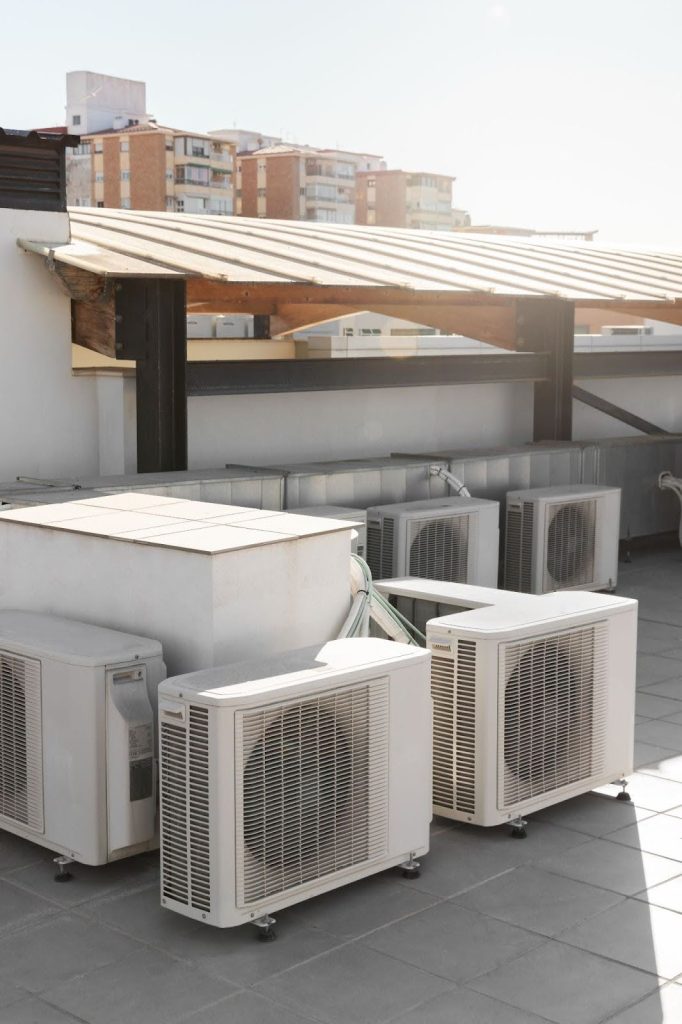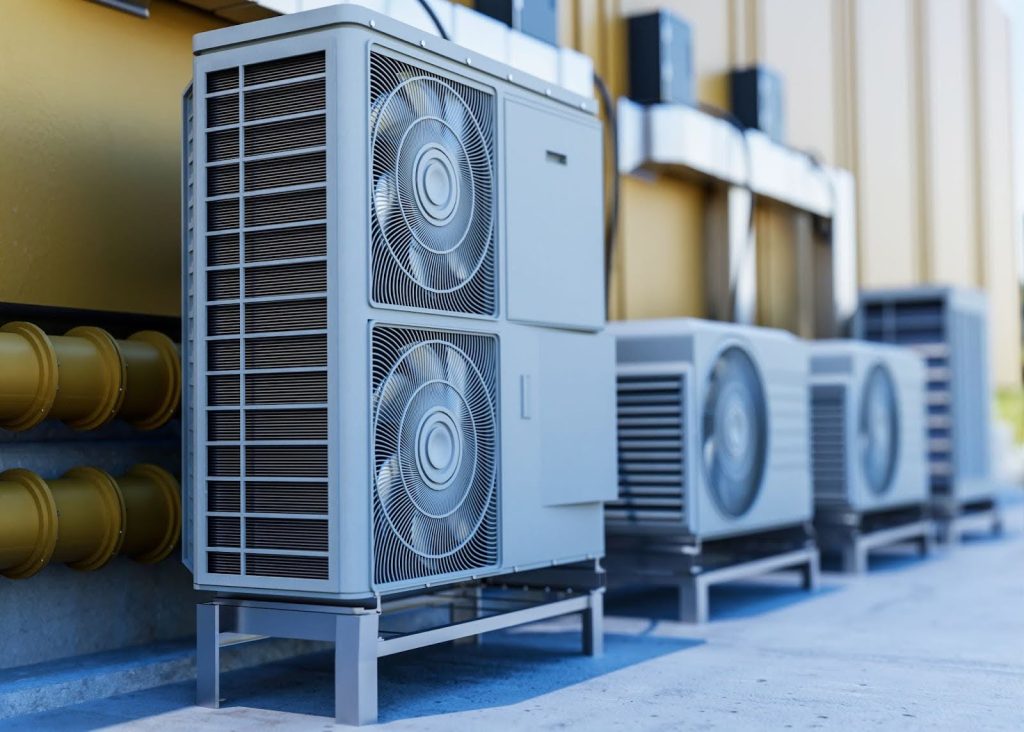The Ultimate Guide to Hybrid Heat Pumps: Everything You Need to Know
The Ultimate Guide to Hybrid Heat Pumps: Everything You Need to Know
March 14, 2024
Hybrid heat pumps offer a promising solution by combining traditional boilers with innovative heat pump technology for a greener home.
The UK government aims to lower carbon emissions from our houses and businesses, pushing towards adopting electrically-powered, low-carbon heating alternatives like hybrid heat pumps.

These systems cleverly blend a gas or oil boiler with a heat pump, ensuring you stay warm while being kinder to the environment.
Get ready to transform your home’s heating and contribute to a cleaner world. Keep reading; it’s easier than you think!
Key Takeaways
- Hybrid heat pumps mix a traditional boiler with a heat pump to use less energy and reduce carbon emissions, helping fight climate change.
- These systems are perfect for both old houses with radiators and new builds designed for energy efficiency.
- You can save on installation costs with grants like the UK’s Boiler Upgrade Scheme, making it cheaper to switch.
- Hybrid pumps work smarter in cold weather by choosing when to use the boiler or the pump for the best warmth and savings.
- They produce less noise than other heating methods, keeping your home quiet while staying warm or cool.
Understanding Hybrid Heat Pumps – A Definition
Hybrid heat pumps use a combination of high-temperature heat pump technology and electric resistance heaters to provide heating, cooling, and hot water in an environmentally friendly way.
Hybrid heat pumps mix a heat pump with another source of heating. This other source is usually a gas or oil boiler. They provide both space heating and hot water for homes. The idea is to use renewable energy from air or ground source heat pumps alongside traditional fossil fuels.

These systems are great for existing buildings, especially bigger houses that need lots of heat. Hybrid systems can work well with radiator-based heating setups already in place. Since the government wants to cut carbon emissions from home heating, hybrid heat pumps offer a smart solution by reducing reliance on just fossil fuels for warmth.
How Do Hybrid Heat Pumps Work?
Hybrid heat pumps blend a traditional gas or oil boiler with an air-source heat pump for efficient heating and cooling. In milder weather, the system mainly uses the heat pump to save energy.
The boiler kicks in as temperatures drop to ensure your home stays warm. This smart switching maximises energy efficiency and reduces running costs.
Benefits of Hybrid Heat Pumps
Hybrid heat pumps save you money on running costs. They use less energy, which cuts down on carbon emissions. This helps fight climate change. These systems are efficient because they combine a heat pump with a boiler.
The boiler can be gas, oil, or biomass like wood pellets.
People who aren’t ready to fully switch to electric heating find hybrid pumps ideal. They offer a step-by-step way to reduce carbon footprint without big upfront costs. Hybrid systems also ensure your home stays warm all year, adjusting between the heat pump and boiler as needed for temperature changes.
Choosing a Hybrid Heat Pump for Your Home
Hybrid heat pumps are a great choice for older homes, especially big ones with lots of rooms and traditional radiator heating. These systems can meet the high heat demand without needing to replace the whole central heating system.
Monobloc options from brands like Daikin offer easy installation. Most times, they don’t even require you to have a hot water cylinder. This makes switching over faster and less costly.
For houses already using gas boilers or combi boilers, adding a hybrid heat pump can cut down on carbon emissions and contribute to achieving net zero goals. It’s important to check your home’s insulation and possibly upgrade it to make sure you get the most out of your new hybrid system.
Good insulation reduces heat loss, making your home more energy efficient all year round.
Options for New Builds
Switching focus to new constructions, builders have a unique opportunity to integrate hybrid heat pumps right from the start. These systems fit seamlessly with sustainable architecture and energy-efficient designs.
Architects can plan for high-temperature heat pumps that work perfectly with underfloor heating or larger radiator systems, ensuring optimal comfort and efficiency.
For those aiming for zero-carbon homes, hybrid heat pumps offer an excellent solution. They make use of renewable energy sources like air or water source heat pumps alongside traditional boilers.
This approach significantly reduces greenhouse gas emissions and meets high energy demands efficiently. Builders can also design homes to be hybrid-ready, drawing on technologies such as Mitsubishi’s latest range of controllers for an easier installation process.
Installation and Running Costs
Consider grants and financial assistance to offset installation costs. Be mindful of the noise levels during operation in residential settings.
Grants and Financial Assistance

Many countries offer grants and financial assistance to help cover the costs of installing hybrid heat pumps. In the UK, schemes like the Boiler Upgrade Scheme and Renewable Heat Incentive (RHI) provide substantial support.
These initiatives aim to make it more affordable for homeowners to switch to greener heating systems. They reduce upfront expenses and promote energy savings and environmental benefits.
Funds from these programs can significantly lower the installation costs of air-source heat pumps, ground-source heat pumps, and other renewable heating technologies. Homeowners may receive payments based on the renewable heat their system produces, helping offset running costs over time.
Checking eligibility criteria is crucial as these offers vary by location and specific project details.
Noise Levels
After exploring the financial side of hybrid heat pumps, it’s crucial to consider how quiet they are. Hybrid heat pumps produce less noise than traditional heating systems. This makes them a great choice for homes where peace is important.
The technology in these pumps uses a smart controller. This controller lowers the noise by managing how the pump and boiler work together.
Different models and brands of hybrid heat pumps have different levels of sound. Before you buy one, looking into their noise ratings can help you pick a quieter option. These pumps not only keep your home warm or cool but also make sure your living space stays peaceful.
Keeping an eye on noise levels is key when considering the cost and setup of hybrid heat pumps for houses or businesses.
Final thoughts
Hybrid heat pumps offer a practical solution for cutting carbon emissions in homes. By combining different heat sources and maximising energy efficiency, these systems provide a sustainable heating option.
Implementing hybrid heat pumps can significantly reduce reliance on traditional oil or gas boilers, contributing to a greener future. Homeowners should consider working with experienced manufacturers and installers to ensure effective design and installation processes.
Exploring the potential of hybrid heat pumps is crucial for addressing the pressing need to transition towards more environmentally friendly heating solutions.







